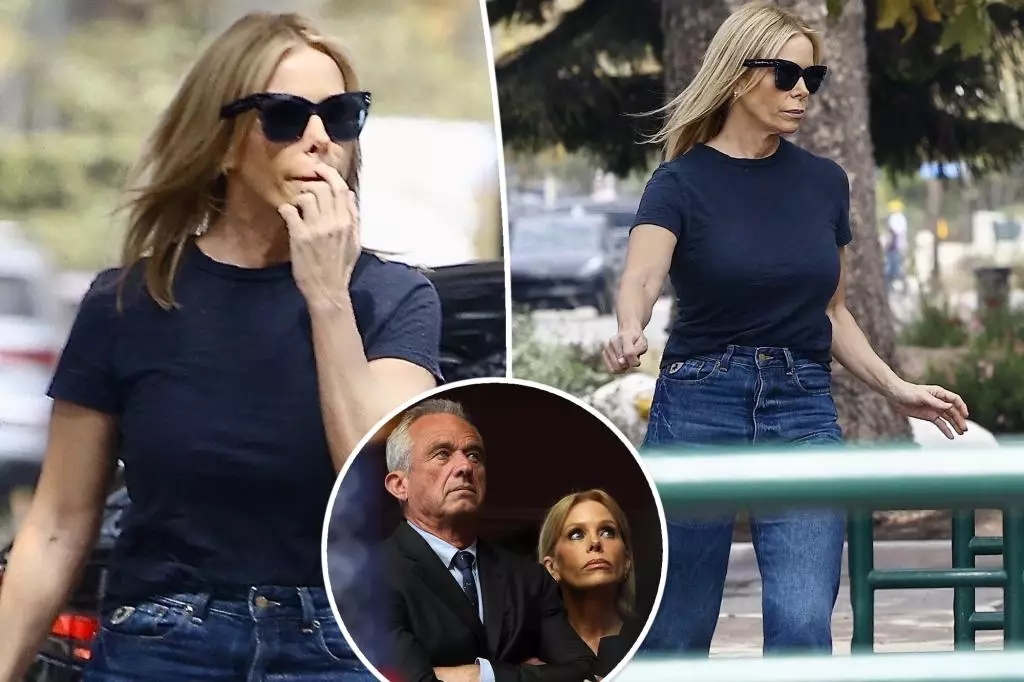The public eye often captures the tumultuous relationships of celebrities, and the recent spotlight on Cheryl Hines and Robert F. Kennedy Jr. exemplifies this phenomenon. Spotted together for the first time since scandal erupted over allegations of infidelity, the couple’s outing in Malibu, California, raises eyebrows and questions about their future. Exclusive images showcased a casual Hines, dressed in jeans and a simple black T-shirt, yet conspicuously absent was her wedding ring—an omission that speaks volumes.
The media frenzy ignited when reports surfaced claiming that Kennedy engaged in an extramarital affair with journalist Olivia Nuzzi, stemming from her involvement in a November 2023 feature on him in New York Magazine. Following this revelation, multiple women came forward with similar accusations, alluding to romantic encounters with Kennedy, particularly through his association with the anti-vaccine organization, Children’s Health Defense. This cascade of revelations paints a picture of a man embroiled in personal and public controversy.
Sources close to Hines have described her emotional state, indicating that she feels not only embarrassed but perhaps betrayed by Kennedy’s alleged behavior. Interestingly, insiders claim that her embarrassment is less rooted in the infidelity itself and more in the subsequent fallout of being publicly exposed. This nuance suggests a complicated emotional landscape where personal and public perceptions collide.
The relationship dynamics are further complicated by political factors. Insiders report that Hines is grappling with Kennedy’s political narratives, particularly his recent endorsement of Donald Trump after withdrawing from the 2024 presidential race. This endorsement reportedly alarmed Hines, a steadfast Democrat, creating a rift that transcends personal grievances and taps into deeper ideological concerns. The suggestion that she feels trapped in “Trump World” reflects a significant tension that could influence the trajectory of their marriage.
Kennedy has acknowledged Hines’s discomfort with his political maneuvering, pointing out that while she remains supportive of him, she does not endorse his political activities. This admission contrasts sharply with their early relationship and indicates a shifting dynamic fraught with discontent.
As rumors swirl regarding the state of their marriage, one critical question emerges: what lies ahead for Hines and Kennedy? Given the accumulation of both personal betrayals and political discord, sources hint that Hines is indeed contemplating divorce. The intertwining of personal and political upheaval paints a picture of a relationship at a crossroads.
The saga of Cheryl Hines and Robert F. Kennedy Jr. resonates as a reflection of broader societal issues, where celebrity narratives mirror public interest in political affiliations and personal integrity. As this story continues to unfold, it serves as a stark reminder of the complexities of love, loyalty, and the fickle nature of public perception. The coming weeks are likely to reveal more about their choices—and the implications these decisions carry for both their personal lives and public identities.

